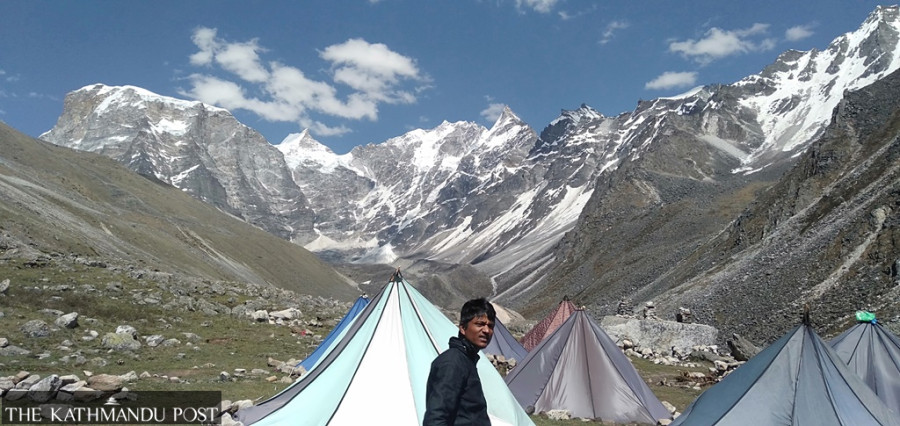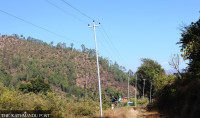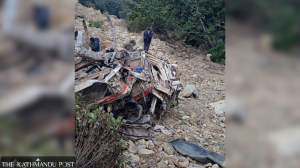Karnali Province
Mugu villagers prepare to go to highlands for yarsa collection
Almost all the local units in Mugu, including Mugumkarmarong Rural Municipality, had imposed a ban on yarsagumba collection in 2020 and 2021 due to the Covid-19 pandemic.
Raj Bahadur Shahi
Tundol Tamang, a resident of Mugumkarmarong Rural Municipality-2 in Mugu, is preparing to go to the highlands to collect yarsagumba after missing out on the previous two seasons.
“Collecting and selling yarsa is our main income source. The Covid-19 pandemic prevented us from collecting the caterpillar fungus for the past two years,” said Tundol. “This year, all the restrictions have been lifted and we can go to the highlands to collect yarsa. We are all preparing to make the journey.”
His neighbour Lakpa Tamang is also hopeful of earning some money and putting an end to the misery his family has been facing for the past two years for lack of income.
Most of the high-altitude settlements in Mugumkarmarong Rural Municipality of Mugu, a remote mountain district of Karnali Province, live with food insecurity. The villagers produce only one crop, mainly Uwa (a barley species), in a year. The total food production is barely enough to last three months. Therefore, most of the villagers are heavily dependent on yarsa yield in the highlands.
“We could not pick yarsa in the last two years due to the pandemic. I took some loans from relatives and neighbours to manage food and meet other requirements of the family,” said Lakpa, who is very optimistic about making some money by collecting the precious fungus this season. “We are preparing to go to the highlands now.”
Yarsagumba is harvested before the monsoon season, mainly between May and June. According to the residents of Mugumkarmarong, the villagers ascend to the highland, locally called Patan, in May third week to pick yarsa and descend to their settlements before the monsoon reaches its peak.
Almost all the local units in Mugu, including Mugumkarmarong Rural Municipality, had imposed a ban on yarsagumba collection in 2020 and 2021 on the heels of the Covid-19 pandemic.
Itol Tamang of Kimri village has started packing foods and other logistics needed for their weeks-long stay in the highlands during the gold rush. She plans to leave two of her children below 10 years at a relative’s house so that three other members of her family could fully concentrate on picking the precious fungus.
“I have managed four sacks of rice, three kilograms of salt, beddings and clothes for our stay in the highlands. We will go soon after the local unit issues the permits for yarsa collection,” said Itol, adding that her family used to earn Rs 150,000 to 200,000 each year by collecting yarsagumba.
The villagers of Mugu, Dolphu, Chitai, Karti, Kimri, Maha and Magri, among 17 settlements of Mugumkarmarong Rural Municipality, are impatiently waiting for the local unit to issue permits for this season’s yarsa collection. The villagers are busy purchasing rice and other necessary goods needed for their stay in the highlands to collect yarsagumba.
“We don’t have any other income sources, except yarsa collection. We eke out a living with the income earned by selling the caterpillar fungus. We hope we will have a good harvest this time as we are going to the highlands after two years,” said Lotan Tamang of Kimri. The villagers think that there will be a good harvest of yarsa this year as the region witnessed plenty of snowfall last winter.
According to the villagers, there are seven highlands, including Koiki, Takekhola, Rimar and Hyajimathan, in Mugumkarmrong Rural Municipality where yarsagumba are found.
According to the District Forest Office, around 35 to 45 kilograms of yarsagumba are collected from Mugumkarmarong every year.
“The local unit is planning to issue permits soon,” said Tsering Kyapne Lama, the chairman of Mugumkarmarong Rural Municipality.




 13.12°C Kathmandu
13.12°C Kathmandu.jpg)












